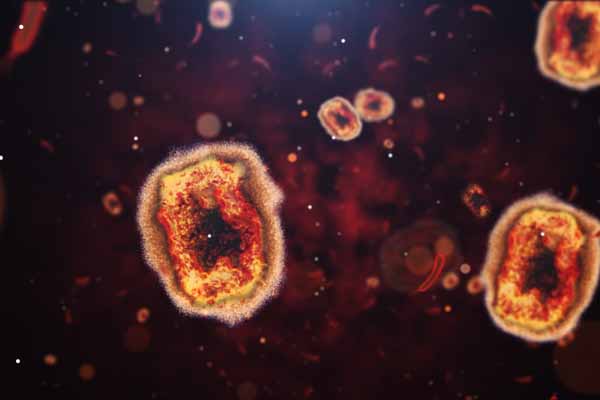
Monkeypox made national headlines recently when Harris County Public Health reported that that a severely immunocompromised person in the county who was “presumptive positive” for the disease became the first person to die after contracting it.
However, it’s not clear if monkeypox was the cause of death, and that won’t be determined until an autopsy is completed in a few weeks, the agency said.
If the death was caused by monkeypox, it will be the first in the U.S. tied to the disease. Regardless of the autopsy’s outcome though, monkeypox historically has a very low mortality rate, said Texas Department of State Health Services (DSHS) spokesperson Lara M. Anton in an email interview.
“We want to stress that for the vast majority of people, monkeypox is painful but not life-threatening,” she said.
As of this writing, Texas has had 1,598 cases of monkeypox, according to DSHS. Though monkeypox is not a sexually transmitted disease and anyone can contract it, most cases during this outbreak have occurred among men having sex with men.
“That population should be especially aware of the situation and take precautions to avoid direct contact with anyone with a rash,” the DSHS website said.
News of the death in Harris County came amid reports that monkeypox vaccine doses stored by the U.S. government in the National Strategic Stockpile are in short supply, according to Ms. Anton. Texas has ordered the entire amount allotted to the state, but health authorities have had to ration the vaccine, known as JYNNEOS.
“The vaccine has been made available to people who have been exposed to a known monkeypox case and, at the discretion of the local health department, to people most at risk of monkeypox infection,” she said.
Physicians should work with their local health department to get eligible patients vaccinated, Ms. Anton emphasized.
“There may be a small amount of additional vaccine available in September, but we do not know how much as it is partially based on the usage of our current supply,” she said.
Physicians should check the DSHS website for updates on monkeypox and the vaccine.
The Texas Medical Association has produced a physician guide to monkeypox testing, and TMA’s Committee on Infectious Diseases has developed a guide showing physicians how to address monkeypox if they encounter it in their patient population.
The shortage of JYNNEOS has been compounded by logistical problems, according to The New York Times. Most vaccines are distributed by the Centers for Disease Control and Prevention’s VTrckS system. But the stockpiled JYNNEOS vaccines are controlled by the U.S. Department of Health and Human Services, which is not part of VTrckS. That has caused shipping delays and misrouting.